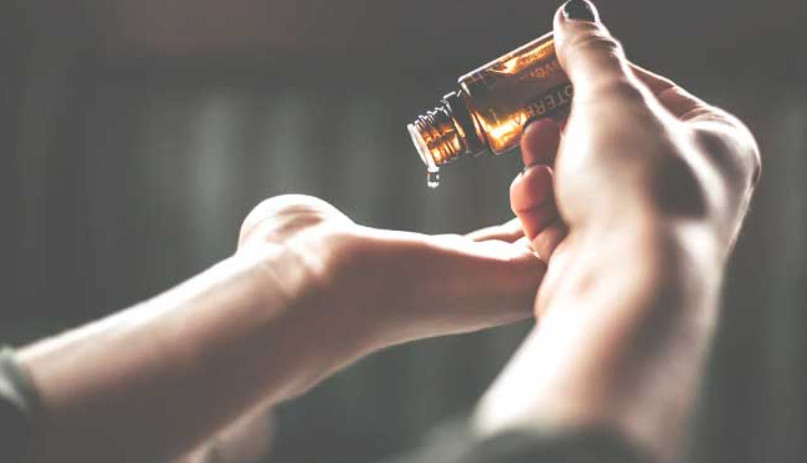There are 10 ingredients in hair care products that damage your hair
Are healthcare companies as concerned about our hair’s health as we are? Is the use of natural materials and the production of organic products a priority for them? Even the most reputable brands in the world are more concerned with selling their products than you and me. Therefore, if you are concerned with the health of your hair, learn about the harmful ingredients in hair health products as soon as possible and avoid them consciously.
1. Sulfate
In most shampoos on the market, sulfate is an affordable cleanser that foams so much when it sits on damp hair that anyone with oily hair will instantly love it. Basically, this substance is what ties the earth to cleanliness in our minds.
What materials should we replace?
Sulfate isn’t directly harmful to the hair, but it is an invasive chemical which dries the hair and removes the natural oil from the scalp, so it is better to use sulfate-free shampoos to dull the hair shaft over time.
Try to avoid the negative effects of sulfates on your hair by using a natural shampoo or conditioner containing natural cleansers such as argan oil.

2. Mineral oils
Mineral oils are a cost-effective moisturizer used in many cosmetic formulations. In hair care products, these oils restore shine to the hair shafts and prevent tangling and splitting. As a hair care product, this protective and shiny coating does not penetrate the hair fiber and has no effect.
If you’re looking for a product that prevents essential hair loss, you should choose coconut oil, because vegetable oils aren’t as effective as mineral oils. It doesn’t matter whether the hair is damaged or relatively healthy. Coconut oil is the most effective natural ingredient for maintaining healthy hair and preventing hair protein loss.
3. Paraben
Preservatives such as paraben prevent bacteria from growing in cosmetic formulations. A 2004 study discovered large amounts of paraben in the tumors of cancer patients. Since then, scientists have not been able to determine the cause, and no further research has been conducted. Still, it is impossible to say for sure that paraben does not cause cancer! To date, most research on the use of this substance in health products indicates that its use is safe. However, science can also be wrong!
We recommend using paraben-free hair care products if you prefer prevention over treatment. Alternatives to paraben include grapefruit seed extract, tea tree oil, and rosemary extract.
4. Denatured alcohols
When used frequently in high concentrations, denatured alcohol dries the scalp. Therefore, it is recommended that hair health products containing this ingredient be completely removed. Alcohol itself does not damage hair. Long-term hair and scalp health can be maintained by avoiding substances that dry the hair and hydrating it properly.
Sterile alcohol, stainless alcohol, and lauryl alcohol moisturize the hair, loosen the hair strands easily, and even increase their thickness. These alcohols are too big to penetrate the hair shaft, and they do not have adequate cleansing properties, but they act as moisturizers and soften the hair.
5. Synthetic perfumes
Experience has shown that perfumes can cause strange skin reactions such as redness, itchiness, hives, or dermatitis. If you see the word perfume on the product label, be more careful. Most products do not even tell you what the perfume is made of. But we tell you. More than 95% of the chemicals in synthetic perfumes are derived from petrochemicals!
What materials should we replace?
Make sure you avoid harmful perfume products if your scalp is prone to allergies by using unscented shampoos and hair masks. You can certainly use these materials to strengthen the tips of hair shafts.
7. Coal tar
In cosmetics such as hair dyes, coal tar derivatives are commonly used to create synthetic dyes. Chemicals and metals such as aluminum substrate, cancer and brain damage are caused by oil-based dyes. The dyes made from this substance are so harmful and irritating that they cannot be used in cosmetic formulations.
What materials should we replace?
Make sure coal tar is not used in the product you are looking for when you buy hair dye products online, and buy from brands you are sure do not use coal tar in the production of their products.

8. Silicon
As a protective seal, silicone in conditioners and conditioners covers the hair shafts and makes the strands smooth and shiny. The moisture and shine that silk gives to the hair is amazing. However, it makes the hair heavy and prevents the hair from drying out by preventing moisture from penetrating deeply into the stems.
What materials should we replace?
You can get healthier hair over time by using conditioners, hair masks, or serums containing cold pressed vegetable oils such as jojoba oil, argan oil, and lettuce oil. Their benefits are a thousand times greater than silicone products. Provide a natural conditioner to compensate for possible silicone damage while using a lightening shampoo.
9. Paraphenylene diamine (PPD)
It is a chemical compound found in most permanent and temporary hair dyes. Even though it causes allergic reactions, skin irritation and sensitivity when it comes into contact with the skin, it is still present in most old hair colors, and consumers should avoid it.
What materials should we replace?
Henna, cassia, beets, coffee and other plant extracts are the best possible options for natural hair coloring. Temporary dyes that use fewer synthetic dyes are less likely to irritate the skin.
10. Propylene glycol
Propylene glycol is a versatile ingredient found in almost all hair care products because of its low price. The substance has a low evaporation rate, so it gradually absorbs all of the scalp’s moisture. Consequently, it is considered one of the harmful ingredients in cosmetics. In other words, if you use it constantly, you will develop an irritated scalp with very dry and brittle hair!
What materials should we replace?
Consider getting a moisturizing hair conditioner as soon as possible if your hair has become dry and flaky as a result of constantly using this substance. The best possible alternatives to products containing propylene glycol are organic ingredients like coconut oil, aloe vera, shea butter, and tea tree oil. Coconut oil and marigold oil are found in organic shampoos that keep the scalp moisturized and stimulate hair growth.


